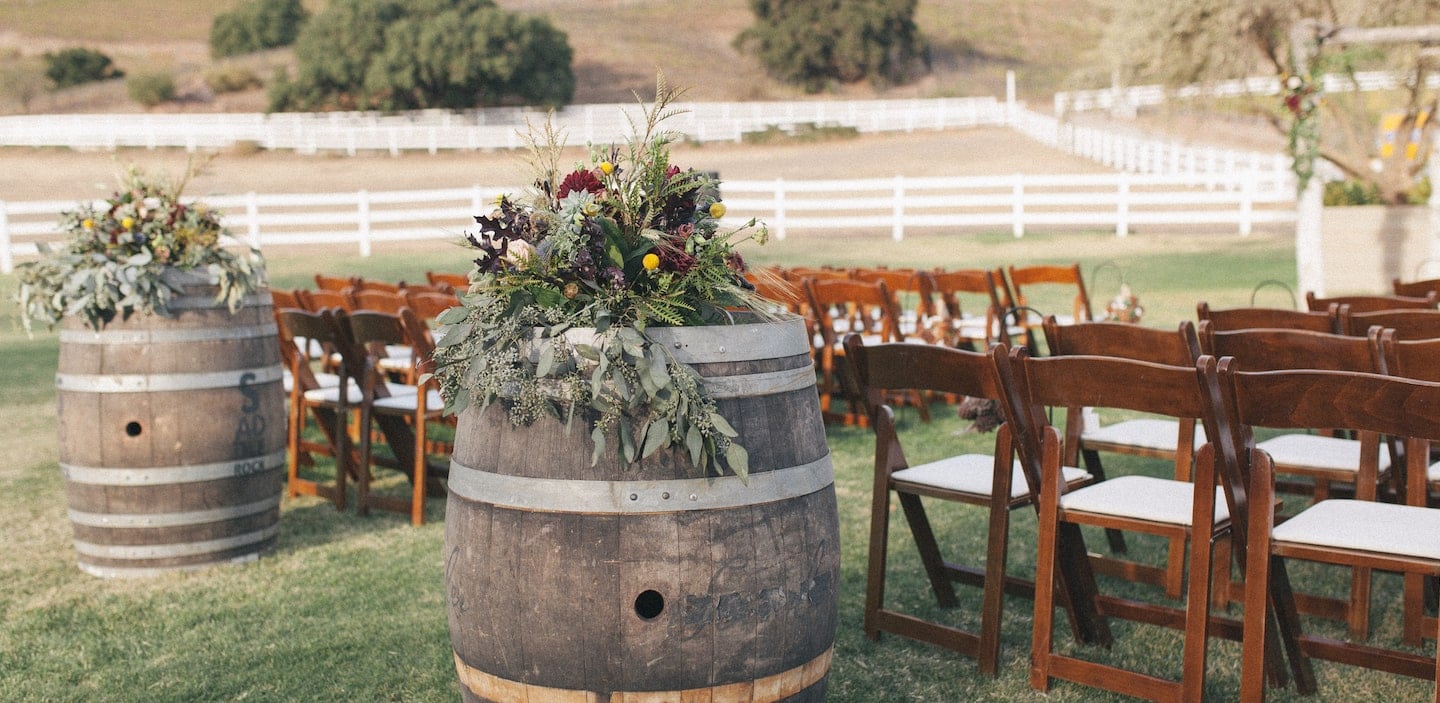If you’re reading this, you probably see potential in all kinds of spaces. Maybe there’s a storefront on the first floor of your building that you want to put to use as a pop-up gallery space. Or maybe you’ve just invested in a barn with a rustic charm, well-suited to everything from weddings to retirement parties. And now, you’re looking forward to starting up your own event venue business.
Wouldn’t it be great if you could just post the listing on Airbnb and start making money? Unfortunately, there are several steps you’ll need to take to ensure your business is legal, profitable, and protected from risk. Don’t let anything affect all that potential and hard work.
If you’re wondering how to open an event venue that succeeds in the long term, this is your guide. Let’s do this.
Check the legality of your venue
While it’s perfectly legal to hold a party in your backyard, there are more rules and regulations when you’re opening a commercial event space.
First, if you’re a member of a homeowner’s association or co-op, make sure your community is comfortable with events at your venue. If you’re a renter, you’ll need to check with your landlord. Next:
- Invite a Fire Inspector to make sure your exits are marked and your event space is up to code.
- Obtain a liquor license if you plan to sell or provide liquor.
- Understand local noise regulations.
- Calculate the venue capacity. As a general rule of thumb, there should be a minimum of six square feet per person1. You should also note that due to Covid-19, venue capacities have made additional capacity restrictions.
Once you’ve cleared these steps, consider creating a legal business entity (for example, a Limited Liability Corporation). This enables you to open a business bank account, to separate your personal finances from your event venue business.
Create an event venue business plan
For long-term success, you need a business plan. Don’t let your cousin rent out the venue for “whatever feels fair”—instead, start by taking a clear look at your finances so that you can make a plan to stay profitable in the short and long term.
Take account of:
- Monthly mortgage and utility payments
- Property taxes
- Renovation and decor costs
- Marketing costs
- Permits and licenses
- Insurance costs (more on this later)
- Payroll, vendor and contractor costs
If there are significant start-up costs, including immediate renovations, consider how you’ll secure funding. A strong plan for event management can help your loan application get approved by lenders.
Next, decide how many times per month you’re hoping to rent your venue. What rate do you need to charge to break even? To create a profit?
Research other comparable venues in your area to see how your pricing compares with theirs. If you can afford to offer a lower price as you get started, you’ll have an easier time finding your first few renters.
Once you have a business plan and initial funding, it’s time to get to work promoting your venue.
Photograph your venue
To assemble marketing materials, you’ll need high-quality photos of your venue. Ideally, these photos help potential renters envision their own special event. To get photos, you can:
- Use decor and staging to show it for multiple uses.
- Host someone else’s event or wedding at your venue at a discounted rate in exchange for the use of promotional photos. (Be sure to use a photo release form.)
- Donate the use of your venue to a nonprofit organization. As an added bonus, you’ll build trust with the local community. Take plenty of photos and videos! Often you can partner with other vendors who will also donate goods or services to the nonprofit organization as a way to get their wares in front of the community. This helps you reduce your costs and can introduce you to potential business partners for the future!
- Host your own venue opening party. While this can add to your start-up costs, it can be a great way to raise awareness and secure promotional photos, all at once.
Whatever method you choose, hire a professional interior photographer who knows how to show your venue in its best light.
Promote and market your venue
Once you have photos of your venue, you’re ready to start getting the word out.
- Create a website complete with lots of photos, directions, contact information, and pricing. For best results, make sure it includes photos and detailed descriptions. (Need help? Hire a website builder well-versed in the art of Search Engine Optimization.)
- Create social media accounts on Facebook and Instagram. Start to follow and interact with local businesses that may be interested in collaborating or in renting your venue.
- Add your venue industry directories and sites such as Peerspace to connect directly with event planners. You can also create a profile on wedding planning sites, if that’s a possible use.
Protect your business from liability
One of the only downsides to owning an event venue is taking on financial and legal risk.
Once you have your first event booked, make sure that you’re protected from liability. After all, a single lawsuit could quickly hinder your ability to grow your event center business.
Event venues should consider:
General liability insurance – Should an event planner step on a rusty nail while visiting your venue, they could sue you. General liability insurance can help protect you from potential client and third-party claims of property damage, bodily injury, personal injury, and advertising injury.
Commercial property insurance – Unless your venue is covered by your homeowner’s insurance, you’ll want a commercial property policy to cover the venue, the premises, and anything inside it (decor, lighting fixtures, sound equipment, etc.).
Workers’ compensation – If you have any employees, you’ll need insurance in the event that they suffer injury or illness as a result of their work for you.
To further protect your venue, require your clients to take out event insurance. While you still need your own insurance, your client’s insurance can help reduce your liability in the event that something goes wrong during their celebrations.
Are you looking for fast, flexible small business insurance? If you plan to host events exclusively in the summer, you may not want a year-long policy. Thimble lets you take out general liability insurance by the hour, day, or month, so that your insurance only operates when your venue is open for business. It may seem obvious, but it’s uniquely Thimble.
Just enter a few details about your small business—including your ZIP and desired coverage length—and you’ll get an instant quote outlining your costs.
Owning an event venue
It all starts with a business plan. Once your venue is up and running, revisit your business plan to make sure changes support your bottom line numbers and focus on growing your client base.
As you continue to book rentals, be sure to capture and post photographs on your website, social media channels, and your online business profiles (Yelp, Google My Business etc.). Ask happy customers to leave you a review and offer a small return discount to clients who promote your venue.
If anything goes wrong, rest easy with the knowledge that you’ve taken the proper precautions to safeguard your business. And don’t forget to use the venue to celebrate your own success!
Source:








